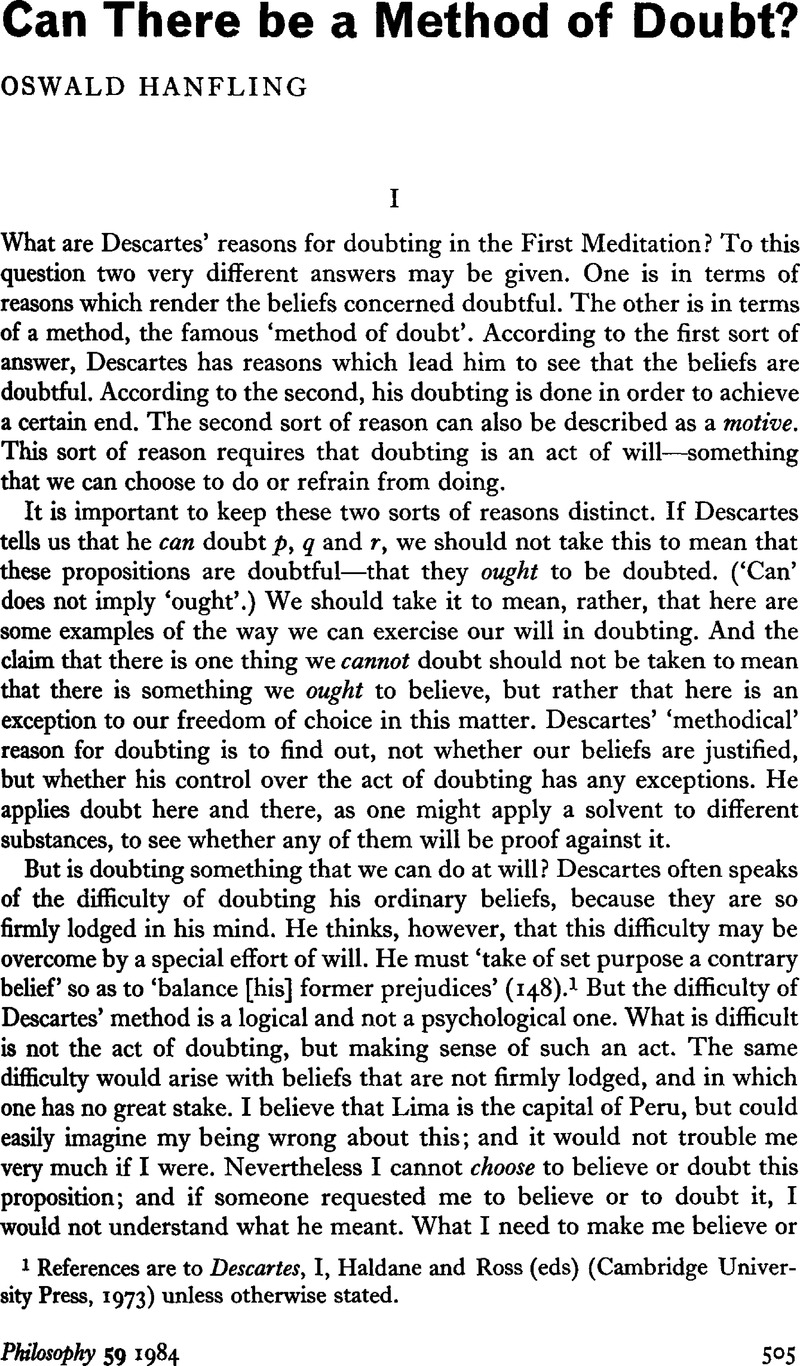No CrossRef data available.
Published online by Cambridge University Press: 30 January 2009

1 References are to Descartes, I, Haldane, and Ross, (eds) (Cambridge University Press, 1973) unless otherwise stated.Google Scholar
2 Hobbes, , HR II, 75: ‘It is true that affirming and denying … are acts of will; but it does not follow …that internal assent depends upon the will’.Google Scholar
3 Modern reconstructions of Descartes’ arguments usually (and consciously) go far beyond what he actually says. Apart from the full-length commentaries, see, for example, the reconstruction of the dream argument by D. and Blumenfeld, J. B. in Hooker, M. (ed.), Descartes (The Johns Hopkins University Press, Baltimore and London, 1978), and Peter, Unger's use of the demon argument in his Ignorance (Clarendon Press, Oxford, 1975).Google Scholar
4 In the Meditation itself the ‘powerful reasons’ are said to enable him to t doubt—‘liceat dubitare’, ‘puisse douter’. (The English ‘in some measure’ is gratuitous.)